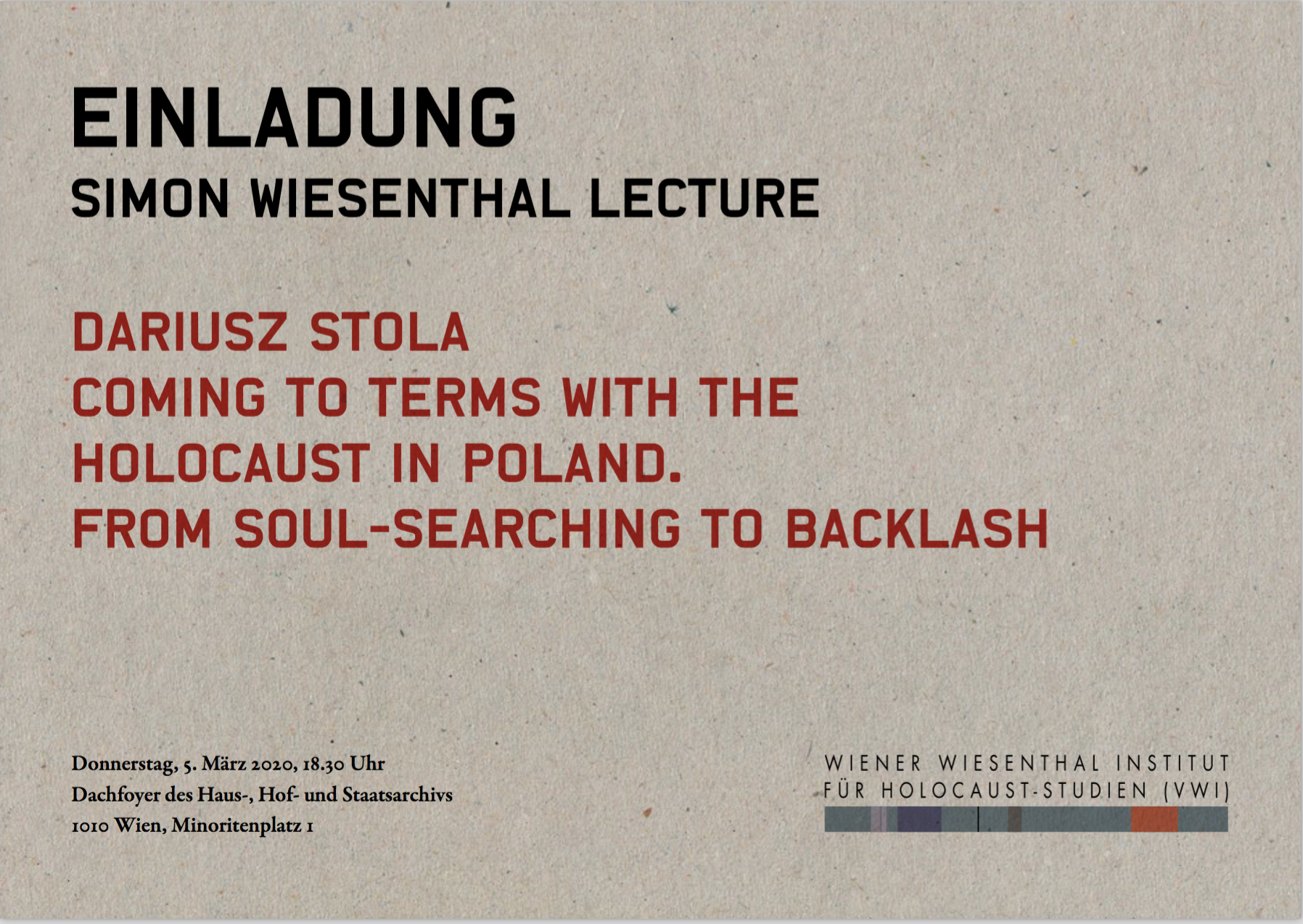Simon Wiesenthal Lectures
The Simon Wiesenthal lecture series takes place regularly every six to eight weeks and aims to present the latest research findings on the Holocaust to both a professional and a broader audience. They take into account the impressive spectrum of this discipline, the numerous questions and issues from empirical-analytical historiography to topics of cultural studies and involve young scholars as well as established academics.
Since 2007, when the Vienna Wiesenthal Institute for Holocaust Studies (VWI) was still being established, the lecture series – at that time in cooperation with the Documentation Centre of Austrian Resistance (DÖW) and the Institute of Contemporary History at the University of Vienna– has developed into the flagship of the VWI's outreach activities as a supporting element in the communication of recent academic findings in the field of Holocaust research and Holocaust and genocide studies.
For over a decade, the Austrian State Archives generously offered shelter to the Simon Wiesenthal Lectures in the roof foyer of the Haus-, Hof- und Staatsarchiv. During the challenging years of the pandemic, the lectures were held online. From autumn 2022, in order to reach out to further audiences, a new cooperation partner was found in the Wien Museum. Until the reopening of the main location at Karlsplatz, the SWL will take place at MUSA, Felderstraße 6-8, next to the Vienna City Hall.
| Simon Wiesenthal Lecture | |||
| Dariusz Stola: Coming to Terms With the Holocaust in Poland. From Soul-Searching to Backlash | |||
Thursday, 5. March 2020, 18:30 - 20:00 Dachfoyer des Haus-, Hof- und Staatsarchivs, 1010 Wien, Minoritenplatz 1
|
|||
After decades of communist distortions and marginalisation of the Holocaust in public remembrance, democratic Poland emerged as a leader in efforts to come to terms with this difficult past. Several major debates on Polish reactions to the crime intensively engaged public opinion. New monuments, educational programs and works by writers, filmmakers and other artists have contributed to the growing awareness and interest in Polish-Jewish history, and the Polin Museum of the History of Polish Jews opened in Warsaw to great acclaim. These developments synergised with a substantial progress in Holocaust research. However, in recent years we have seen a backlash against this tendency. Prominent politicians and media of the right have rejected it as a “pedagogy of shame” and called for a glorious vision of national history, focussing on heroism and victimhood. Holocaust distortion has assertively expanded. The memory of the Shoah remains a key battlefield of the culture war that divides Poland today. Dariusz Stola is a historian and professor at the Polish Academy of Sciences. From 2014 to 2019, he was the director of the Polin Museum of the History of Polish Jews in Warsaw. He has published ten books and many articles on the history of Polish-Jewish relations, international migrations and the communist regime, as well as on Polish debates on these topics, including Kampania anty syjonistyczna w Polsce, 1967-1968 (The anti-Zionist campaign in Poland, 1967-1968, Warsaw 2001) and Kraj bez wyjścia: migracje z Polski 1949-1989 (A country with no exit? Migrations from Poland, 1949-1989, Warsaw 2010). Mit der Teilnahme an dieser Veranstaltung stimmen Sie der Veröffentlichung von Fotos, Video- und Audioaufzeichnungen zu, die im Rahmen der Veranstaltung entstehen.
|
|||








